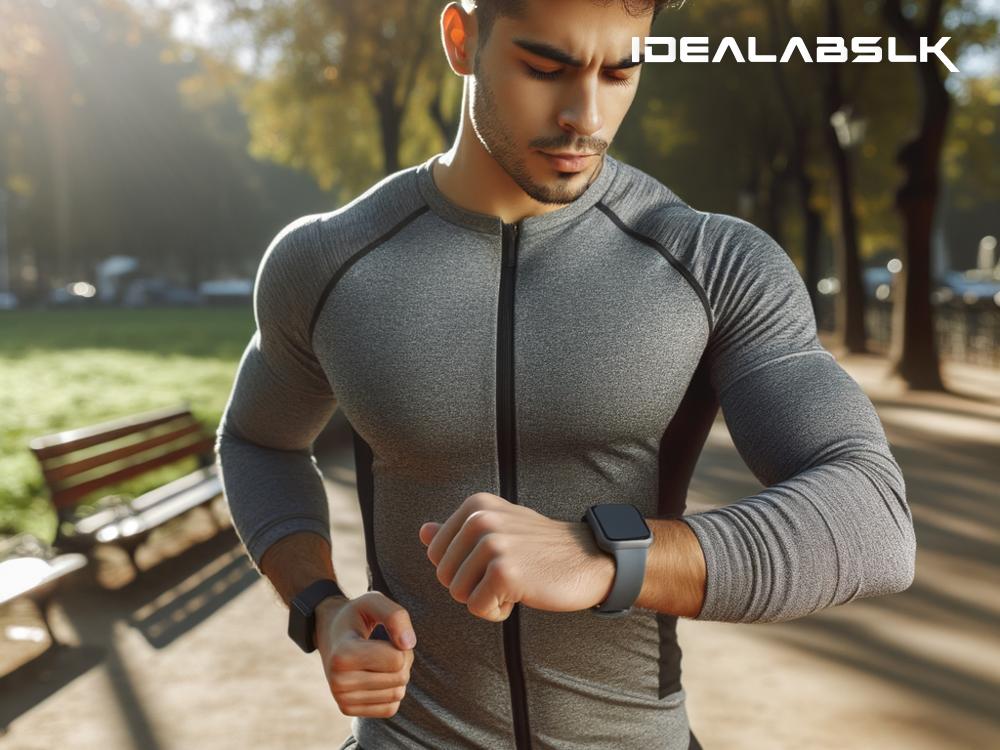Title: How AI is Revolutionizing Fitness Through Your Wearable Devices
In our constantly evolving world, technology seems to latch onto every part of our daily lives. One of the areas it’s making a significant impact is in the realm of fitness and health, specifically through wearable devices like smartwatches and fitness bands. These gadgets have become our 24/7 fitness buddies, tracking everything from our step count to our sleep patterns. But ever wondered how these devices analyze all the data they collect? The answer is with a little help from AI, or Artificial Intelligence.
AI is like the brain behind the operations, making sense of all the sensor data gathered by your wearable devices. Let’s dive into how AI optimizes this data to help us better understand and improve our health and fitness.
Understanding Sensor Data
Firstly, it’s essential to know what sensor data is. When you go for a run wearing your fitness tracker, it collects data like your heart rate, the distance covered, your pace, and much more through various sensors. This raw data, however, isn’t very useful on its own. Imagine being handed numbers and graphs without any context – it wouldn’t mean much, right? This is where AI steps in to convert this data into actionable insights.
The Power of AI in Fitness Devices
AI uses complex algorithms and machine learning techniques to analyze the data collected by wearable devices. Here are a few ways AI optimizes this sensor data:
-
Personalized Fitness Plans: AI can identify patterns and trends in your daily activities and suggest personalized workout plans. For example, if your device notices you’re particularly active on weekends, it might suggest you focus your harder workouts on those days.
-
Sleep Quality Analysis: Devices track data like movement during sleep and heart rate to provide insights into your sleep quality. AI algorithms can analyze this data to offer suggestions for improving sleep patterns, which is crucial for overall health.
-
Early Detection of Health Issues: By continuously monitoring vital signs, AI can help in early detection of potential health issues. For example, abnormal heart rates or irregular patterns in sleep data might prompt the device to suggest a check-up.
-
Real-time Feedback and Adjustments: During workouts, AI can give real-time feedback on your performance and even adjust your workout plan on the fly. It’s like having a personal trainer in your ear, telling you to push harder or take it easy based on your current physical state.
-
Improvement Tracking: AI makes it easier to track progress towards your fitness goals by analyzing your performance over time. It can provide you with weekly reports that show improvements in your endurance, strength, or sleep quality, making it easier to stay motivated.
The Role of AI in Future Fitness Devices
The capabilities of AI in optimizing sensor data in wearable devices are constantly evolving. The future might see even more personalized and adaptive fitness assistance. Imagine a device that not only suggests the best workout plan but also adapts it in real-time based on how your body is reacting. Or better yet, devices that can predict potential injuries by analyzing your movement patterns and suggesting corrective exercises.
Privacy and Security Concerns
With all this personal data being collected and analyzed, privacy and security are valid concerns. It’s crucial for companies to implement secure data practices and for users to be aware of how their data is being used.
Wrapping Up
AI is transforming the way we approach fitness and health. Through optimizing sensor data in wearable devices, it provides personalized insights and suggestions that can help us lead healthier lives. As AI technology continues to grow and improve, the possibilities are virtually endless. From improving workout plans to preventing health issues, AI has the potential to be your ultimate health and fitness companion.
In a world where we’re constantly seeking to improve our health and fitness, the collaboration between wearable technology and AI offers promising prospects. So, the next time you strap on your fitness tracker or smartwatch, remember you’re wearing not just a piece of tech, but a sophisticated AI-powered tool designed to help you achieve your best self.

